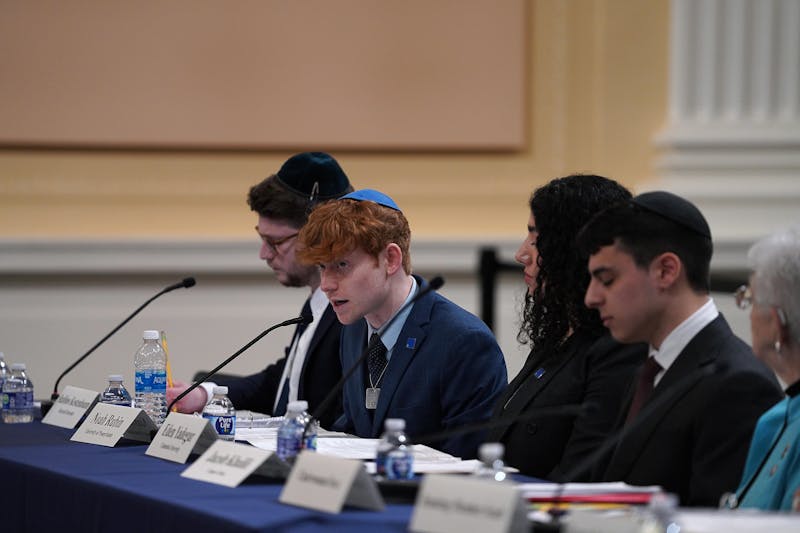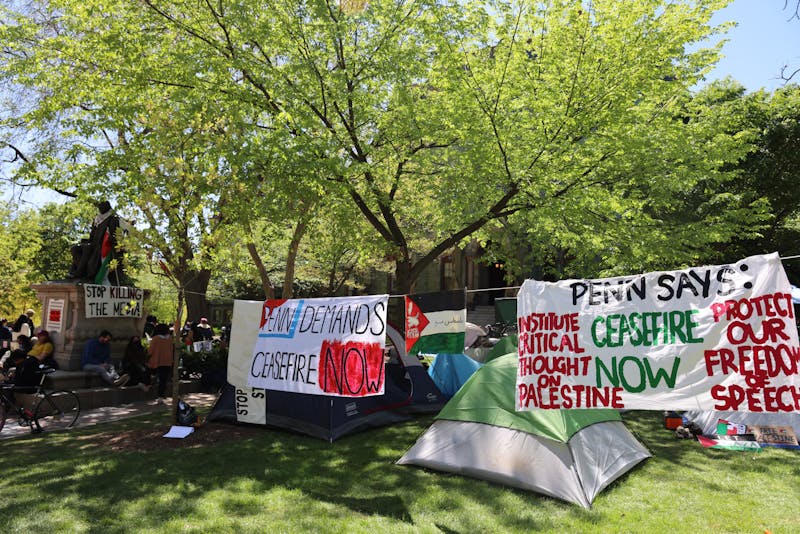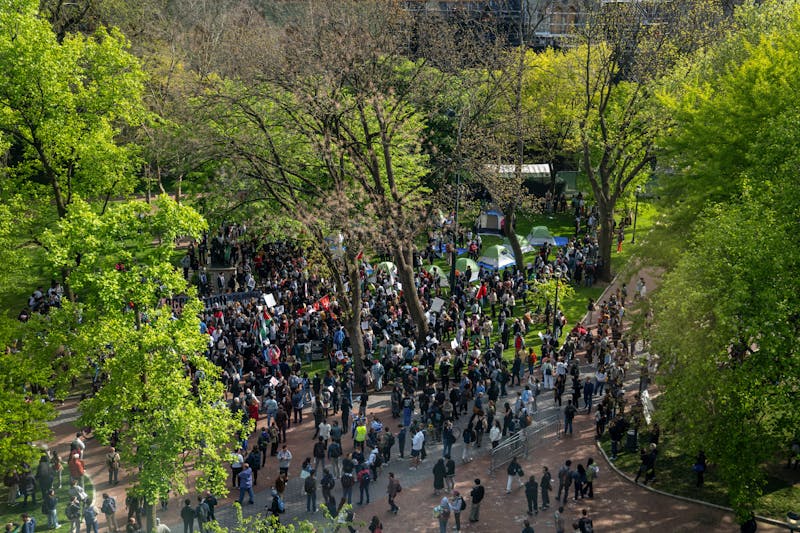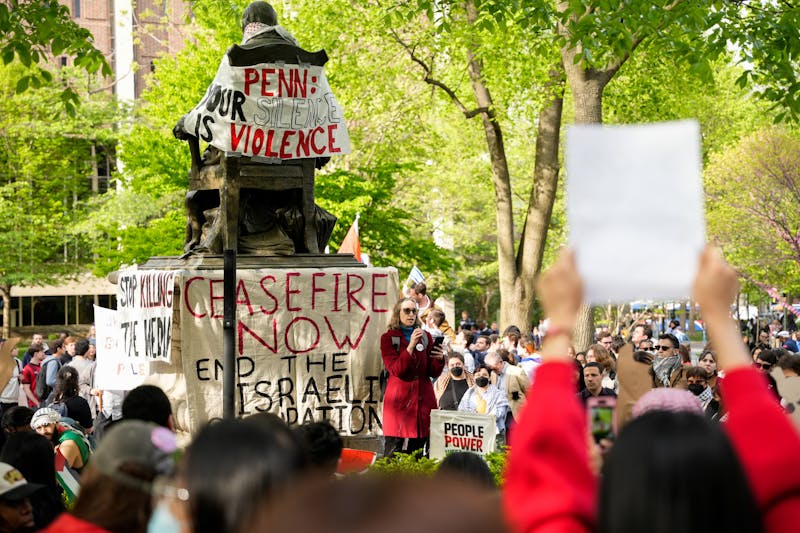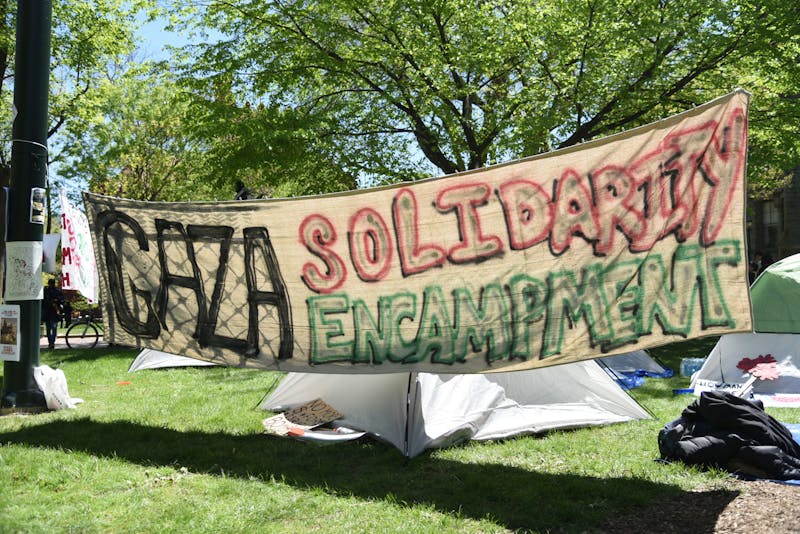
Yesterday morning, a billboard truck parked at the corner outside of my office on the University of Pennsylvania’s campus, at Walnut and 36th streets. It played a four-minute video loop of the Hamas terrorist attack of Oct. 7, 2023. These were horrific and painful images and sounds. Charred human bodies, a desperate mother fearing for her baby’s life, two young siblings crying and yelling that their older sister had been taken and was not coming back while their heartbroken parents tried in vain to console their children.
The billboard trucks — which had been a fixture of Penn’s campus in the weeks leading to former President Liz Magill’s forced resignation last December — being back also keeps me awake at night. I fear that it forebodes another traumatic crisis on campus.
The billboard trucks at Penn, just like the airplane that flew over the Harvard University and Massachusetts Institute of Technology campuses in early December 2023, are part of a concerted, external political campaign against higher education institutions, against academic freedom, against open expression, and, in the case of our University, against a peaceful protest of students, staff, faculty, and local community members. On our campus, as on so many others around the country and the world, this student-led protest movement has taken a particular form: that of the encampment. The encampment is what characterizes the form of protest of this student movement. This is what social movement scholars call the repertoire of collective action. Unlike past student movements that took over university buildings, this less intrusive and disruptive movement occupies the carefully mowed, green grounds of our universities’ campuses, instead.
Our Penn encampment was created shortly after 4 p.m. on Thursday, April 25. As a concerned faculty member who deeply believes that the right to peaceful protest is a fundamental right of democracy, I have walked around the perimeter of the encampment every day, several times per day. I have witnessed with my own eyes that this is a peaceful protest of Penn students, staff, and faculty.
The students participating in this encampment are the brilliant and caring students we admitted to Penn because our admissions officers saw world leaders and problem solvers in their applications. These are students who most likely selected Penn over other universities because we are the civic Ivy: a University that cares about its local community, a University created by Benjamin Franklin on the Quaker value that all of us can and must contribute to the collective good every day. These are the students our University will solicit for future donations, who will be invited to Homecoming events, who make up the blood and soul of Penn — just as all our students do.
Also at the encampment are Penn staff members who keep our departments and centers running efficiently, who work in their offices all day even when classes are not in session, who regularly stay late to run our evening academic events, who are responsible for making the wheels of our University turn. At the encampment are also faculty who have worked at Penn from a few years to a few decades. Colleagues who are passionate about their subjects, who are world leaders in their fields of study, who devote their lives to our University, to their scholarship, to teaching and mentoring our graduate and undergraduate students, and who volunteer in the countless committees that are the connective tissue of our University’s shared governance: from facilities to academic curriculum committees and everything in between.
The encampment also includes Drexel University and Temple University students, part of the same student-led social movement, and other members of the local community. I don’t know them as well, but I suspect they are a diverse group of individuals who, like many people around the world, are mobilizing because they believe that a genocide is taking place in Gaza and that there should be a ceasefire. These are members of the community that we encourage our students to partner with in our Academically Based Community Service courses. These are parents, siblings, and children who live next door, people we may have met in our local schools, grocery stores, or restaurants. These are Philadelphians.
To some, our encampment is a sign of hope, the awakening of a generation to the unsustainable and unjust reality of the Palestinian people in Gaza and the West Bank. To others, such as those funding the billboard trucks, the encampment is a sign of a misguided youth. I have heard Jewish staff and students who prefer not to walk by the encampment. I understand them. The encampment brings to the fore difficult messages, chants, and debates. As an educational community, however, we cannot move forward by silencing or censoring debate and dissent. We must make room (both physically and symbolically) to encourage these conversations with open minds and hearts: Listening, reading, writing, learning, doing what we do every day on our campus to better understand each other and the world we live in. If we silence a large part of our student body, if we censor our staff, if we self-censor as faculty for fear of being misinterpreted, retaliated against, doxxed, or sanctioned, our University is no longer an institution of higher education. Without allowing room for dissent and for genuine dialogue over complex issues, universities die.
We are the City of Brotherly Love; we are the city of the First Amendment. Today, I am proud to be a professor at Penn and not a professor at Columbia University, at Emory University, or at any of the other universities that have sent riot police to forcefully remove and arrest their students, staff, and faculty from their encampments and lawns. I am also proud of our Philadelphia police, who I saw de-escalating conflict on campus on Thursday afternoon and allowing peaceful protesters to carry on with their fundamental democratic right to peacefully protest. I look up to Northwestern (where I attended graduate school), Brown, Rutgers, Berkeley, Wesleyan, Dickinson, and all the other universities and colleges that allow this peaceful encampment movement to continue or that have negotiated in good faith with students, as possible models for future decisions. Based on our campus experience from last December, I look forward to the billboard trucks not dictating what happens on our campus. But most importantly of all, I look forward to tomorrow being another day of peaceful encampment protest at Penn and to our University administration negotiating in good faith with our students.
TULIA G. FALLETI is a professor of Political Science and chair of the Faculty Senate. Her email address is falleti@sas.upenn.edu.
End note: The views and opinions contained in this guest column are all my own. I write this in a personal capacity, based on information that is publicly available, and not as a representative of the Penn faculty. The Faculty Senate Executive Committee met for a special meeting to discuss current events on April 29, and the minutes of that meeting can be found here. A second meeting of the SEC has been called for May 9, and if any shared agreements or recommendations of this faculty body emerged, they will be informed in its corresponding minutes.
The Daily Pennsylvanian is an independent, student-run newspaper. Please consider making a donation to support the coverage that shapes the University. Your generosity ensures a future of strong journalism at Penn.
Donate







